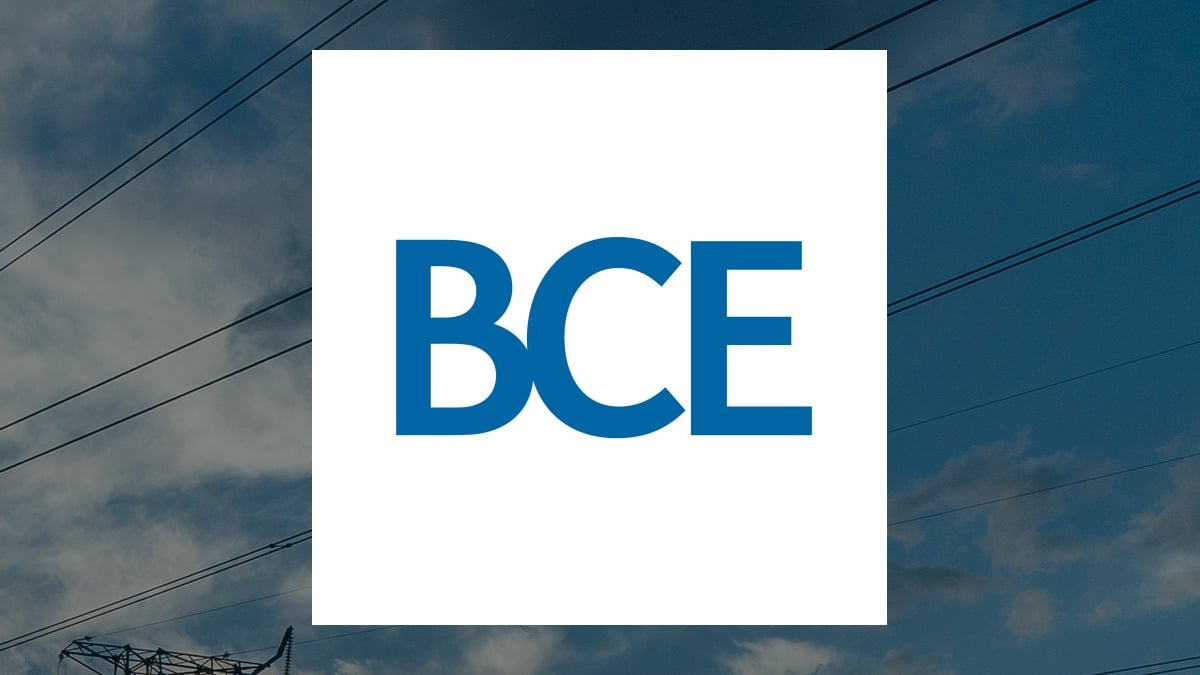online games in laptop
 online games in laptop
online games in laptop
The Government will introduce a public, private, people-centric entrepreneur concept to develop the industrial sector, Sunil Handunnetti, Minister of Industries and Entrepreneurship Development said after assuming duties at the Ministry of Industries and Entrepreneurship Development. What existed all this time was a public-private entrepreneur concept. The Government has now focused on a new public, private and people-centric model. The new concept will come under State ownership and private sector management and the people could participate as investors. Although under the purview of the State, management and technology could be provided by the private sector with capital infusion from the public, Handunnetti said. The Minister reiterated that the Government plans to convert Sri Lanka into an attractive place for foreign investment by eradicating bribery, reducing approval time for projects and lowering taxes for investors. He also said heavy taxes, delayed approval time and soliciting bribes were the main reasons that prevent foreign investments from coming into the country. He said the bane of the country was the inordinate delay for a business to get off the ground. It takes about a year and approval from at least 20 entities had to be obtained. He said these delays are purposefully orchestrated to solicit bribes. Handunnetti said under their governance, technology would be used to streamline delays and other strategies put in place to stem bribery and corruption, The Minister also outlined plans to combine vocational training institutes, institutes under the Education and Higher Education Ministry and technological universities with his Ministry to create modern entrepreneurs. He said they will use the unique digital economy concept and the existing industrial zones, industrial cities and ‘industrial parks’ which is a new concept that will be introduced to achieve the target. Handunnetti said the Government plans to start new industries and convert nonprofit State institutions into profit-making entities in a short time. He said they understand the problems industrialists face in the country. Mainly from the time of the corona pandemic industrialists found it difficult to repay loans, as a result many industries faced closure followed by employees being made redundant and their assets being sold under the Parate law. The Minister said due to these issues, continuing business has become a huge problem and entrepreneurs have fallen into a deep crisis. The Government also plans to combine young locals as well as entrepreneurs living overseas to usher in a new era in the country’s industrial sector. He called upon the youth having multiple skills to remain in the country instead of trying to migrate overseas and join the Government to accomplish this task,Will the College Football Playoff just around the corner, this marks the first year that the bracket is expanding from just four teams to twelve. But it also means there are some changes being made regarding payouts to college conferences with schools competing in the playoff. The Football Bowl Division, commonly referred to as the FBS, is the highest level of college football in the United States and consists of over 100 teams in 10 conferences. But of those 100 teams, just 12 will advance into the College Football Playoff. RELATED STORY | NCAA, leagues sign off on $2.8 billion plan, setting stage for dramatic change across college sports Each conference will receive different payouts based on the number of teams in the conference that make the College Football Playoff. But those teams will be eligible to earn even more money for their conference the further they advance. For the 2024-2025 College Football Playoff: RELATED STORY | States sue NCAA, saying organization unfairly restricts players' sponsorship opportunities
Israel’s AI startup activity is two to four times greater than that observed in the United States or Europe, highlighting the unparalleled density of its AI sector. AI startups constitute 30% of Israel’s tech landscape, accounting for up to 40% of funding rounds and securing 47% of total investments, according to a recent report from Startup Nation Central or SNC. The 2024 Stanford AI Index , ranked Israel first globally in terms of AI talent concentration and fifth in relative AI skill penetration rate between 2015 and 2023, surpassing the global average by 1.63 times across similar occupations. “Israel stands at the forefront of global AI innovation, driven by an exceptional ecosystem of startups, academia, and strategic support from both local and multinational players,” says Avi Hasson, CEO of Startup Nation Central. Hasson highlights the unique “vertical” focus of Israeli AI startups. They have developed sector-specific AI solutions, using industry-specific data and expertise. “A key metric that sets Israel apart is its focus on applied AI solutions in areas like cybersecurity, health tech, and agriculture, which positions it as a leader in practical AI applications... with over 2,000 startups developing the next era of AI applications,” writes Arik Kol, Head of Nvidia Inception Startups Program at Nvidia Israel, in his preface to the SNC report. Nvidia has over 4,000 employees in Israel, including a substantial AI research team, working closely with Israeli universities to form the company’s 2nd largest R&D center outside of the U.S. Nvidia is one of more than 400 multinational corporations that have established R&D operations in Israel. From 2014 to 2023, top multinational corporations acquired one Israeli AI startup for every four American AI acquisitions, showcasing Israel’s strong global appeal. “Israel’s AI ecosystem stands out as a global innovator with its unique combination of applied AI focus, cross-industry expertise, and a thriving network of academia, startups, and multinational corporations,” writes Nvidia’s Kol. The AI development centers of Microsoft and Google focus on machine learning and natural language processing, Amazon’s AWS center drives AI integration within cloud services, Meta’s pursues AI-driven communications, and Apple’s Israeli R&D centers work on AI-powered features, including facial recognition. These R&D centers of the largest tech companies sometimes grow out of the acquisition of an Israeli startup but also often serve as the breeding grounds for new startups with founders moving from the “horizontal AI” of Big Tech to a vertical focus. This applied AI focus is based on unique Israeli experience and expertise in various economic sectors. For example, the vast amount of healthcare data digitized by Israel’s healthcare providers over the last 30 years has served as the launching pad for healthcare-focused AI startups: · Precision medicine startup Promise Bio has recently emerged from stealth with an $8.3 million seed investment to further develop its platform integrating epiproteomics and AI to identify predictive biomarkers for personalized therapies targeting immune-mediated diseases like autoimmune disorders. · UMass Memorial Health, the largest not-for-profit health care system in central Massachusetts, recently reported that within four months of adopting AEYE-DS, the AI-based autonomous diagnostic screening system developed by AEYE Health , diabetic retinopathy screening adherence increased from 29% to 49%, and the average screening time in the hospital’s primary care workflow fell by 75%. · Ballad Health, the leading healthcare provider in the Appalachian Highlands has deployed MedAware's AI-based medication safety monitoring platform, embedding it within the workflow of its Epic electronic medical record or EMR system. As a result, Ballad Health expects that thousands of patients will be safer from adverse drug events. Other areas of focus for practical AI solutions from Israeli startups include cybersecurity (e.g., 7AI, an agentic security platform), climate tech (e.g., FireDome, detecting and suppressing wildfires), and fintech (e.g., Next Insurance, insurance for small businesses). In addition to specific domain expertise, some of these vertically focused startups rely on data that is unique to their target market and application. In a recent event organized by UpWest , a Palo Alto-based VC investing in Israeli startups, Nadav Cohen observed: “Data can be a powerful differentiator, especially if you’ve got data that isn’t accessible to the public or being used by big companies to train their models.” Cohen is co-founder & CTO of Imubit (AI for process control) and Research Director of the Foundations of Deep Learning Lab at Tel Aviv University. While the majority of Israeli AI startups target a specific economic sector, a few have emerged as leaders of “horizontal” AI solutions. Hailo, for example, is in the hot AI chips business and has successfully developed AI processors uniquely designed to run high-performance AI models on edge devices. Another Israeli startup that plays in the big leagues is AI21, developer of an innovative “foundation model” that competes with OpenAI, Google, and others for the attention of enterprises. The impact of Israeli AI startups, whether vertical or horizontal, is felt way beyond Israel. Certainly in the U.S., their most important market, but also right in their Middle Eastern neighborhood. For example, Integrated Data Intelligence, an Abu Dhabi-basaed subsidiary of OurCrowd, a global investment platform and Israel’s most active VC, has recently onboarded the first cohort of customers for DANNA , its proprietary investment AI copilot. Jonathan Medved, CEO of OurCrowd, describes the specific leadership role of Israeli startups in the global AI landscape, given the sky-high cost of current AI technology: “Israel’s tech advantage lies in its roots in the military, where young engineers are imbued with the culture of doing more with less... Faced with immediate threats to their family and community, they learn to cut corners and move fast because the stakes are so high... Israeli startups have started to figure out significant optimization and cost efficiencies, with major price reductions that will allow AI to scale and reach its promise.”Ibnul Hasan Dhaka University's decision to restrict external vehicle access during specific hours has sparked widespread frustration among the city's residents as the new rules, limiting vehicle entry from 5:00 PM to 10:00 PM on weekdays and from 3:00 PM to 10:00 PM on weekends, coincide with peak traffic hours, amplifying Dhaka's already critical congestion issues. The recent decision of Dhaka University to restrict entry for external vehicles from 5:00 p.m. to 10:00 p.m. on workdays and from 3:00 p.m. to 10:00 p.m. on weekends and holidays has raised a storm of frustration across Dhaka. While the university may have had security or logistical reasons for this restriction, the timing of this decision is problematic as it clashes with peak hours for traffic, when the public most urgently depends on these roads. This move does not only affect Dhaka universities’ students and faculty; it impacts daily commuters, emergency services, and local businesses, further exacerbating the already strained traffic conditions in the capital. The hours of the restriction fall within some of the busiest periods in Dhaka's daily traffic cycle. From 5:00 p.m. to 10:00 p.m. on workdays, people are returning home from work, children are leaving schools, and many essential services operate. Similarly, the weekend restrictions from 3:00 p.m. to 10:00 p.m. overlap with the time when families are heading out for errands or entertainment, adding an additional layer of congestion and inconvenience. The no-entry timing for vehicles during peak hours exacerbates the already critical traffic-jams that characterize Dhaka. It is bound to cause sullen bottlenecks in nearby areas, considering the DU roads are key transit routes for thousands of commuters every day, with few routes to divert. Closing this route during peak hours neglects the needs of smooth traffic flow for the general population of Dhaka. Dhaka is notorious for traffic gridlocks, and this is adding to it. The streets around DU are vital and connect major parts of the city, like business centers, hospitals, and educational institutions. It is blocking the access to thousands in critical times, which turns out to be a critical issue for people who depend on these routes to find their way across the jammed roads of Dhaka. This is leading to disgruntlement among the commoners. Also, restrictions that impact basic transport like buses and rickshaws mean disturbances to this essential manner of movement of people around Dhaka. The drivers in Dhaka-one of the world's most jammed cities-make difficult lives more unbearable for drivers in an effort to take their passengers where they are supposed to be taken to. The new rules also affect emergency vehicles, which may be caught up in traffic and hence reach hospitals or accident sites late, putting lives at risk. Several ambulances have been witnessed stuck in the traffic caused by these restrictions, further putting the lives of those in urgent need of medical attention in danger. This oversight could have serious consequences for individuals requiring immediate medical intervention, as timely response is critical in emergencies. The decision to close off public roads without consideration for the wide-ranging effects of such a decision demonstrates a serious lack of vision and inability to balance the needs within the university with those in the larger community. Such a decision reflects not only a lack of sensitivity on the part of the university administration but also a failure of values that a university of excellence, like DU, should be upholding-social responsibility, empathy, and collective thinking. One would have expected students of such a prestigious institution to have considered the public good and devise a more pragmatic solution, rather than resort to a move that would exacerbate an already problematic traffic situation. While it is clear that the university's administration has its reasons for tightening security or controlling traffic, the solution of restricting external vehicles at these times seems to be without much awareness of its effects on the general public. There are other ways of ensuring campus security and improving the university's internal logistics without causing huge disruption in the city's movement. DU could limit access to high-security zones - specific areas like dormitories, academic buildings, and faculty offices - without keeping the entire campus out of reach for all vehicles. These roads can be kept open for the general public since they are quite essential for the general traffic flow of the city. Similar to other major institutions worldwide, DU could have introduced technology like scanning devices or access-controlled gates for students and staff to enter restricted zones on campus, without disrupting public traffic flow. The university could have worked with city authorities to find a solution that balances security concerns with the needs of commuters. This could include establishing drop-off points or adjusting traffic signals to mitigate any adverse effects of the restrictions. While this might be within Dhaka University's mandate, either to improve security or streamline traffic within its campus, the timing is highly unfortunate for the general public on account of certain restrictions against the flow of traffic along public roads. The closing of such strategic routes, especially during rush hours of traffic, simply shows indifference to the welfare of society at large. Instead of blanket restrictions, DU could have implemented more targeted solutions that preserve the flow of traffic while addressing its own security needs. Dhaka's residents, who are already fighting daily traffic nightmares, deserved better than this ill-thought-out measure. Moreover, the delays brought about by these restrictions are not just an inconvenience; they are potentially life-threatening. Ambulances caught in the jam due to the closures vividly bring into focus that such decisions can have serious, even fatal consequences. This decision is certainly disappointing coming from the students of Dhaka University, which is regarded as one of the best educational institutions in Bangladesh. As a university that should set an example, it was crucial for them to consider the broader social impacts of their actions and come up with a more balanced solution. For the well-being of all people in Dhaka, it would be beneficial for the university to revisit its approach, ensuring that both campus security and public welfare are given the attention they deserve. The writer is a final-year law student at University of Asia Pacific, with an interest in labor rights and economic development.
LONG BEACH, Calif. (AP) — Devin Askew had 28 points in Long Beach State's 76-68 victory over Hawaii on Saturday night. Askew also had six rebounds, seven assists, and seven steals for the Beach (3-8, 2-0 Big West Conference). Austin Johnson scored 14 points and added 10 rebounds. TJ Wainwright went 5 of 9 from the field (2 for 3 from 3-point range) to finish with 14 points. The Rainbow Warriors (5-3, 0-1) were led in scoring by Marcus Greene, who finished with 17 points. Gytis Nemeiksa added 14 points, seven rebounds and two steals for Hawaii. Akira Jacobs also had 11 points. Long Beach State takes on San Diego on the road on Tuesday, and Hawaii hosts Texas A&M-CC on Sunday. The Associated Press created this story using technology provided by Data Skrive and data from Sportradar .Virginia basketball falls in ACC opener to league newcomer SMU: 3 takeaways
This is how much conferences will make for each team in College Football Playoff
- Previous: online games gun
- Next:




